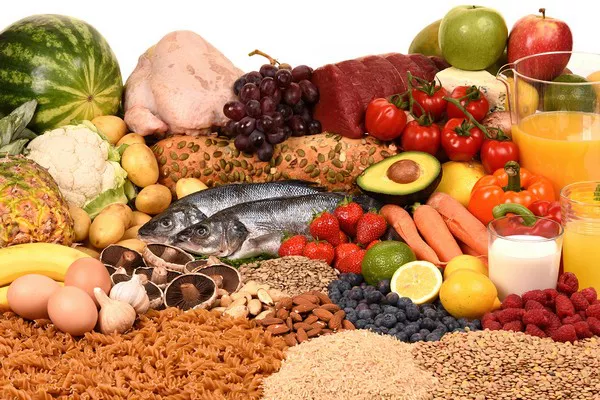B vitamins are a group of water-soluble vitamins that play important roles in the body’s metabolism and energy production. There are several different B vitamins, each with its own unique functions and benefits. In this article, we will explore how many different B vitamins there are, what they do, and how to ensure you are getting enough of them in your diet.
What are B Vitamins?
B vitamins are a group of water-soluble vitamins that are essential for many of the body’s functions. They play important roles in energy production, metabolism, and the formation of red blood cells. B vitamins are not stored in the body, so it is important to get them through your diet or supplements.
Different B Vitamins:
There are eight different B vitamins, each with its own unique functions and benefits. These vitamins are:
Thiamine (B1): Thiamine is important for the metabolism of carbohydrates and the production of energy. It also plays a role in the proper functioning of the nervous system.
Riboflavin (B2): Riboflavin is important for the metabolism of fats, carbohydrates, and proteins. It also plays a role in the production of red blood cells and the proper functioning of the nervous system.
Niacin (B3): Niacin is important for the metabolism of fats, carbohydrates, and proteins. It also plays a role in the production of energy and the proper functioning of the nervous system.
Pantothenic Acid (B5): Pantothenic acid is important for the metabolism of fats, carbohydrates, and proteins. It also plays a role in the production of energy and the proper functioning of the nervous system.
Pyridoxine (B6): Pyridoxine is important for the metabolism of proteins and the production of red blood cells. It also plays a role in the proper functioning of the nervous system and the immune system.
Biotin (B7): Biotin is important for the metabolism of fats, carbohydrates, and proteins. It also plays a role in the production of energy and the health of the skin, hair, and nails.
Folate (B9): Folate is important for the production of red blood cells and the proper development of the fetal nervous system during pregnancy.
Cobalamin (B12): Cobalamin is important for the metabolism of fats, carbohydrates, and proteins. It also plays a role in the production of red blood cells and the proper functioning of the nervous system.
Sources of B Vitamins:
B vitamins are found in a variety of foods, including:
Whole grains
Meat, poultry, and fish
Eggs
Dairy products
Leafy green vegetables
Legumes
Nuts and seeds
Fortified cereals and breads
It is important to eat a varied diet that includes a range of these foods to ensure you are getting enough B vitamins.
Deficiency of B Vitamins:
Deficiency of B vitamins can lead to a range of health problems, including:
Anemia
Fatigue
Nervous system disorders
Skin problems
Birth defects
Digestive problems
Depression and anxiety
Cognitive decline
It is important to ensure you are getting enough B vitamins in your diet to prevent these health problems.
Supplements of B Vitamins:
If you are not getting enough B vitamins in your diet, you may consider taking supplements. However, it is important to talk to your doctor before starting any new supplements, as some B vitamins can interact with certain medications.
Thiamine (B1):
Thiamine, also known as vitamin B1, is important for the metabolism of carbohydrates and the production of energy. It also plays a role in the proper functioning of the nervous system. Thiamine is found in a variety of foods, including whole grains, meat, fish, and legumes.
Deficiency of thiamine can lead to a condition known as beriberi, which is characterized by weakness, fatigue, and nerve damage. Severe deficiency can also lead to Wernicke-Korsakoff syndrome, a neurological disorder that can cause confusion, memory loss, and difficulty walking.
Riboflavin (B2):
Riboflavin, also known as vitamin B2, is important for the metabolism of fats, carbohydrates, and proteins. It also plays a role in the production of red blood cells and the proper functioning of the nervous system. Riboflavin is found in a variety of foods, including dairy products, eggs, meat, and leafy green vegetables.
Deficiency of riboflavin can lead to a condition known as ariboflavinosis, which is characterized by sore throat, swollen tongue, and cracked lips. Severe deficiency can also lead to anemia and neurological problems.
Niacin (B3):
Niacin, also known as vitamin B3, is important for the metabolism of fats, carbohydrates, and proteins. It also plays a role in the production of energy and the proper functioning of the nervous system. Niacin is found in a variety of foods, including meat, fish, whole grains, and legumes.
Deficiency of niacin can lead to a condition known as pellagra, which is characterized by skin rash, diarrhea, and dementia. Severe deficiency can also lead to death.
Pantothenic Acid (B5):
Pantothenic acid, also known as vitamin B5, is important for the metabolism of fats, carbohydrates, and proteins. It also plays a role in the production of energy and the proper functioning of the nervous system. Pantothenic acid is found in a variety of foods, including meat, fish, whole grains, and legumes.
Deficiency of pantothenic acid is rare, but can lead to fatigue, depression, and irritability.
Pyridoxine (B6):
Pyridoxine, also known as vitamin B6, is important for the metabolism of proteins and the production of red blood cells. It also plays a role in the proper functioning of the nervous system and the immune system. Pyridoxine is found in a variety of foods, including meat, fish, whole grains, and legumes.
Deficiency of pyridoxine can lead to a range of neurological problems, including seizures and depression.
Biotin (B7):
Biotin, also known as vitamin B7, is important for the metabolism of fats, carbohydrates, and proteins. It also plays a role in the production of energy and the health of the skin, hair, and nails. Biotin is found in a variety of foods, including eggs, meat, fish, and nuts.
Deficiency of biotin is rare, but can lead to hair loss, skin rash, and neurological problems.
Folate (B9):
Folate, also known as vitamin B9, is important for the production of red blood cells and the proper development of the fetal nervous system during pregnancy. Folate is found in a variety of foods, including leafy green vegetables, citrus fruits, and legumes.
Deficiency of folate can lead to a range of health problems, including anemia and birth defects.
Cobalamin (B12):
Cobalamin, also known as vitamin B12, is important for the metabolism of fats, carbohydrates, and proteins. It also plays a role in the production of red blood cells and the proper functioning of the nervous system. Cobalamin is found in a variety of foods, including meat, fish, and dairy products.
Deficiency of cobalamin can lead to a range of health problems, including anemia and neurological problems.
Conclusion:
In conclusion, there are eight different B vitamins, each with its own unique functions and benefits. These vitamins are important for energy production, metabolism, and the proper functioning of the nervous system. B vitamins are found in a variety of foods, including whole grains, meat, poultry, and fish, eggs, dairy products, leafy green vegetables, legumes, nuts and seeds, and fortified cereals and breads. Deficiency of B vitamins can lead to a range of health problems, so it is important to ensure you are getting enough of these vitamins in your diet. If you are not getting enough B vitamins in your diet, you may consider taking supplements, but it is important to talk to your doctor before starting any new supplements.
[inline_related_posts title=”You Might Be Interested In” title_align=”left” style=”list” number=”6″ align=”none” ids=”4670,4634,4629″ by=”categories” orderby=”rand” order=”DESC” hide_thumb=”no” thumb_right=”no” views=”no” date=”yes” grid_columns=”2″ post_type=”” tax=””]

































